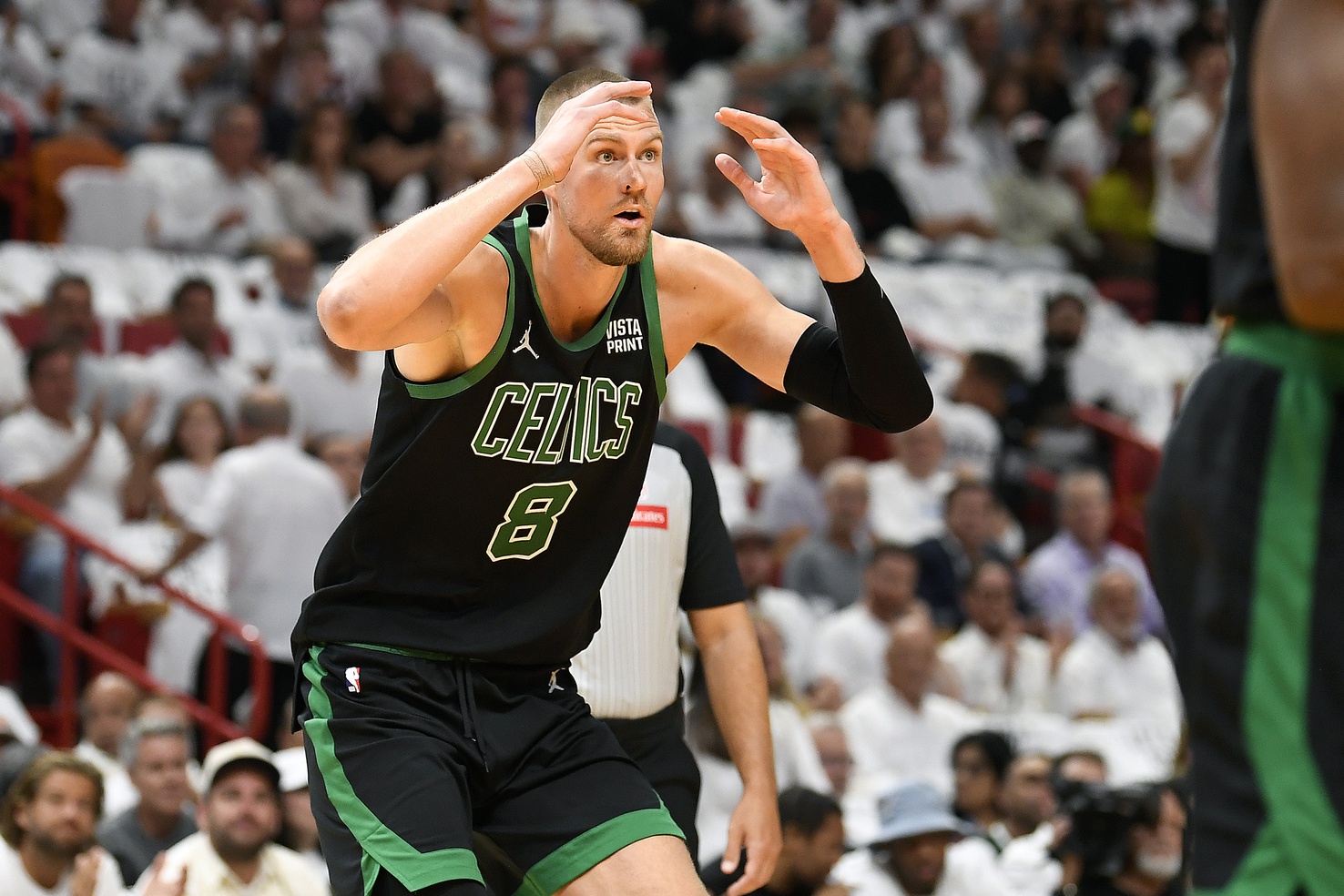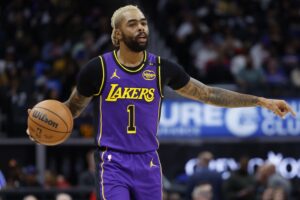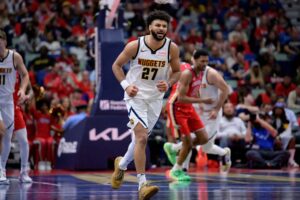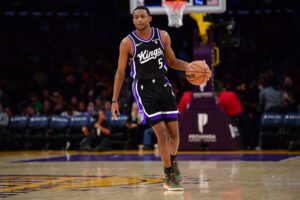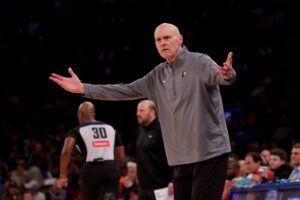In Game 4 against the Heat Kristaps Porzingis went down with a calf injury. Since then he’s officially been diagnosed with a soleus calf strain, the same injury Giannis Antetokounmpo recently dealt with. The Celtics expect Porzingis to be sidelined at least for the second round before returning for a potential conference finals matchup. In the next round, the Celtics will take on the winner of the Cavs Magic series Cleveland currently leads 3-2. Let’s dive into how the Celtics can maintain their success without Porzingis.
3 Keys for The Celtics to Maintain Success Without Porzingis
1. Other Bigs Must Step Up
Perhaps the most obvious implication from Porzinigis’ injury is how it impacts the Celtics center rotation. Al Horford will slide into the starting center role where he started 33 regular season games. Horford’s incredible experience, floor spacing, and high-IQ defense make him extremely trustworthy in the playoffs. While Horford still offers quality production, his age is a concern. At 37 it’s worth wondering if Horford can handle an increased minute load. Horford averaged 25.6 minutes, 8 ppg, 7 rpg, and shot 40% on three-pointers in the first round. Last year Horford averaged 30 minutes in the playoffs the year before he averaged 34. Whether the Celtics can consistently get 30-plus minutes out of Horford with high-level production remains to be seen. Horford’s production and ability to play big minutes will greatly impact the Celtics’ success, especially against the size of the Magic or Cavs.
Additionally, the Celtics will count on the contributions of Luke Kornet and Xavier Tillman to round out their big-man rotation. Kornet was injured for the first two games of the opening round before appearing in the last three games of the series. He averaged 8.7 minutes, 2 ppg, and 4 rpg in these three games. Kornet averaged 16 minutes in the regular season without Porzingis his minutes will likely increase to this range. Kornet is a solid lob threat and rebounder however his mobility and defense present serious concerns in a playoff setting.
In the first round Tillman only received a total of seven minutes all in Game 5. However, the Celtics may turn to Tillman considering these factors. Tillman averaged 13.7 in the regular season; he’s a high-IQ player on both ends of the floor with great rebounding skills. Additionally, Tillman has solid playoff experience averaging 30 minutes per game with the Grizzlies last year. While Tillman’s minutes will likely start within the 10 to 12 range, his skill set and experience could allow him to become an important part of the Celtics rotation. Ultimately at least one of these centers must step up and take on a bigger role without Porzingis.
2. Find Ways to Generate Inside Looks
Porzingis’ presence as an efficient lob and post-up threat unlocked a new element in the Celtics offense. Porzingis shot 62% on post-ups this year putting him in the 96th percentile. Without him, the Celtics will need to find more ways to generate quality looks inside. This is especially important for the Celtics as they rank dead last in two-point frequency in both regular and postseason play. The Celtics must find ways to balance out their shot diet and get more interior looks. The Celtics could utilize Horford more as a post-up threat; he shot 61% on post-ups this year on a fraction of Porzingis’ attempts.
Additionally, look for Jayson Tatum to get more post-up opportunities he shot 52% on post-ups placing him in the 76th percentile he’s particularly effective at punishing smaller matchups. However, Jaylen Brown generating rim pressure will likely be the Celtics’ main source of interior scoring. Brown is the only Celtics starter who scores two-pointers than Porzingis with 60% of his points on two-point attempts. Furthermore, this year Brown shot a career-high 61% at the rim. An aggressive Brown will balance out the Celtics offense and set the tone for the series.
3. Stifling Team Defense
Without Porzingis the Celtics rim-protection and defense will certainly take a step back. However, the Celtics had the second-ranked on the season and their collective elite defense is still intact. This number has translated to the playoffs where the Celtics rank third with a 100.7 defensive rating. Horford isn’t a dynamic shot blocker like Porzingis however his high IQ and elite instincts will be enough to keep the Celtics defense at a high level. Jrue Holiday will also likely get more opportunities to guard opposing big men. The Celtics defensive strategy will change based on their second-round matchup.
Against the Cavs, the Celtics will have to pressure their ball-handlers with stifling perimeter defense from Holiday and Derrick White. Alternatively against the Magic, the Celtics would have to pack the paint forcing the Magic into shooting as much as possible. The Celtics matching the defensive intensity and physicality of their defensive-minded opponents will be key. Regardless of the opponent the Celtics playing suffocating team-oriented defense will be necessary to overcome Porzingis’ absence.


